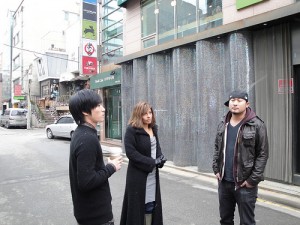Two very interesting examples of Hollywood’s approaches to globalization in the news recently, one very smart and positive, one achingly stupid. But I think the two symbolize the good and the bad of how media companies are trying to figure out the future of their businesses.
First, the good. From Variety, an article about how Fox has been stepping up its international productions (behind the world’s most useless paywall). Through a division called Fox International Productions (creative name), Fox has been producing and co-producing movies in Spain, Germany, China, Russia, India and more. Why did Fox become so enthusiastic about international productions? The article quotes Fox International Productions president Sanford Panitch:
“The weekend the movie [JUMPER] opened, I remember getting an email from Fox Korea, where the film was one of the highest openings ever. But we were still No. 2 for the weekend. I thought, ‘How is that possible?’ Sure enough, a local Korean film, ‘The Chaser,’ was No. 1,” said Panitch.
So Panitch and Fox started to look all over the world, particularly in markets with strong local movies:
One of his first deals: He signed with “Chaser” director Hong-jin Na to direct Korean local-language production “The Yellow Sea.”
Panitch constantly watches videos of foreign movies, and often touches base with Fox’s network of foreign offices (there are 28 in all). He’s primarily focused on territories where local films dominate, such as India, Japan, France, Germany, Spain, South Korea, Italy and the U.K. He’s particularly focused on Italy these days. “I’m on the road a lot. I’m home from Hong Kong on Thursday, and leave for Russia on Sunday. I was in Japan every six weeks for a year. I’ve gotten these terrific development people,” Panitch says.
Which I think is great. Over and over again, countries that have strong local movie industries tend to have strong overall film industries. Look at Korea, where foreign movies went from 75 percent of the market to less than 50 percent over the past decade (sometimes under 40 percent). But over that same period, the Korean movie market more than quadrupled; Hollywood does not dominate Korea anymore, but it makes a lot more money now. So if Hollywood wants to help spur local production, I think that is a positive thing for everyone.
And now the bad. Or, rather, the very, very stupid. Hollywood is threatening to stop distributing DVDs in Spain because of all the online piracy over here. Yes, some people’s solution to piracy is actually to make their product harder to access legitimately.
The similarities with Korea are quite interesting. Says this LA Times article:
Spain is on the verge of becoming the second country in which piracy has ravaged what was once a robust business. In 2008, the last of the major studios shut down their operations in South Korea for the same reason.
In addition, online piracy is not against the law in Spain unless it is done for profit, very similar to the position the courts in Korea have taken repeatedly over the years. And, surprise surprise, neither country has an iTunes store, making it all the more difficult to watch movies online legitimately.
But the big lesson Korea teaches is that people ARE completely willing to buy content online when given the opportunity and the right business models. Koreans have been spending more money for online music than offline for five or six years now. However, media companies cannot expect to continue as before. As the Internet Manifesto states, “Tradition is not a business model” (declaration No. 12).
In short, if you want to succeed in the modern age of the Internet and globalization, you need to localize and you need to adapt. Neither bludgeoning nor whining get you anywhere.







